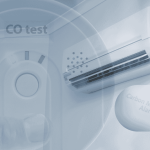Let’s set the stage. Imagine you’ve just gotten your car back from a routine oil change, and as you drive off, you notice that your air conditioner isn’t cooling as it once did. Is it a mere coincidence, or is there an actual correlation between the two? In this comprehensive guide, we will explore the relationship between oil changes and the air conditioner’s performance. By the end, you’ll have a clear understanding, armed with knowledge and expertise.
Nearly anyone who owns a vehicle could encounter this problem. While many might dismiss the link between oil changes and AC performance as mere superstition, there is a science behind it. From daily commuters to long-haul drivers, the interplay between different car systems is a topic of relevance for all.
Cars are complex machines, with systems interlinked in more ways than one might think. A minor disruption in one can cascade and affect others. As we delve into the topic, the reasons for the potential influence of an oil change on AC performance will become clear.
What are the Side Effects of Oil Changes on Air Conditioner?
If you don’t want to destroy your AC by your own silly ignorance, stay alert to the effects of the oil changes on the air conditioner.
Refrigerant Contamination:
Possibly the most significant concern. Engine oil can, on rare occasions, find its way to the refrigerant, especially if care isn’t taken during the oil change. This not only reduces the efficiency of the AC but can also lead to other complications.
How to Fix?
A thorough system purge is required. The entire AC system should be drained, cleaned, and then refilled with fresh refrigerant.
Sensor Malfunctions:
Oil spills or splatters can interfere with the sensors related to the AC system. These sensors play a pivotal role in regulating temperature and ensuring efficient functioning.
How to Fix?
Clean the sensors thoroughly. If any of them are damaged, replacements may be necessary.
Electrical Interference:
The electrical systems in cars are intricate. An oil change might inadvertently impact the electrical components associated with the AC.
How to Fix?
A comprehensive electrical check is essential. Ensure that all connections are intact, and any damaged wires are promptly replaced.
Belt and Pulley Issues:
Sometimes, the belts associated with the AC compressor might get contaminated with oil, leading to slippage or reduced efficiency.
How to Fix?
Clean the belts with an appropriate cleaning agent or consider replacing them if they’re worn out.
Misplaced AC Lines:
During an oil change, especially in tightly packed engine bays, mechanics might shift AC lines for better access. If not placed back correctly, it can lead to reduced efficiency or even damage.
How to fix:
Regular inspections can help ensure all components are in their correct places.
Incorrect Oil Quantity or Type:
While this primarily impacts engine performance, it can indirectly affect the AC, especially if the engine overheats.
How to fix:
Always refer to the car’s manual to ensure the correct oil type and quantity.
Refrigerant Cross-contamination:
A rare side effect, especially if the mechanic confuses AC service ports for oil-related ports.
How to fix:
Regular servicing and ensuring that only trained professionals handle your vehicle.
How to Fix AC Doesn’t Work After an Oil Change?
Sometimes, the problem might not be evident. If your AC isn’t functioning post an oil change and the common issues aren’t the culprits, consider the following:
Check the AC Relay:
This component is crucial for the functioning of the AC. Ensure that it’s in working order and hasn’t been compromised.
Condenser Inspection:
The AC condenser plays a role in cooling the refrigerant. Ensure it hasn’t been accidentally damaged or blocked during the oil change.
What are the Signs that tell Your AC Needs an Oil Change?
While AC systems in cars don’t require oil changes like engines do, they do contain a lubricating oil. This ensures that the system operates smoothly. But how do you know it’s time for a change?
A Pungent Odor:
If your AC starts emitting a foul smell, it might be time to check the lubricating oil.
Reduced Efficiency:
Just like engine oil, the lubricating oil in the AC can get contaminated over time, reducing its efficiency.
Will Low Oil Cause AC to Stop Working?
While they may seem unrelated, they’re part of a larger ecosystem within your car. Low engine oil can lead to overheating, prompting the car’s computer to shut down auxiliary systems, including the AC, to prevent further damage.
Is There Any Effects of Temperature on Engine Performance?
Engine oil is responsible for lubricating moving parts, cooling components, and ensuring optimal engine performance.
A well-maintained engine tends to produce less heat. As engines heat up, the efficiency of various systems, including the AC, can drop.
While direct correlation between an oil change and AC performance may not be overt, indirect influences are undeniable.
Why Professional Maintenance Matters?
Consider this: Would you trust an orthopedic surgeon with a heart procedure? Similarly, not all mechanics have the expertise to handle intricate systems like the AC.
Opting for professionals who specialize in HVAC for vehicles ensures that not only is the AC system handled correctly, but its interconnectedness with other systems, such as the engine and its oil, is thoroughly understood.
Use Genuine Parts:
A professional will always recommend genuine parts. These components are specifically designed for your vehicle type, ensuring maximum compatibility and performance.
Regular Diagnostics:
Professionals tend to have advanced diagnostic tools. Regular checks can preemptively identify potential issues, ensuring that an oil change or any other routine maintenance doesn’t inadvertently affect the AC.
What is the Role of Oil in the AC System?
The AC system in cars contains a special type of oil, distinct from engine oil. This lubricates the compressor, the heart of your AC. Over time, this oil can degrade or get contaminated, much like engine oil.
- Symptoms of Degraded AC Oil: A noisy compressor, reduced cooling efficiency, and inconsistent airflow might signal that the AC’s oil needs a check.
- Replacing AC Oil: This isn’t a task for the average DIY enthusiast. Special equipment is needed to extract old oil and contaminants without damaging the compressor or releasing refrigerants into the atmosphere.
What are the top 3 Myths on Oil Change of AC?
1. “Turning on the AC immediately after an oil change can damage it.”
Truth: There’s no scientific basis for this claim. However, it’s always a good idea to let your car run for a few minutes after any maintenance to ensure all systems are functioning correctly.
2. “Using the AC reduces fuel efficiency.“
Truth: While AC systems do consume power, driving with windows down at high speeds can also reduce efficiency due to increased drag. It’s all about balance.
3. “You can use engine oil in the AC compressor.”
Truth: A dangerous misconception. Engine oil and AC oil are fundamentally different and serve unique purposes. Mixing them can result in significant damage.
How to Prevent Oil Change Affecting AC?
- Stay Vigilant: Be present during maintenance. This allows you to ensure that due care is taken and minimizes the risk of unintended issues.
- Choose a Specialist: Not all mechanics are equal. Some specialize in specific areas. If possible, choose one with a background in HVAC for vehicles.
Your car is a marvel of engineering, where every component plays a role in ensuring that your journeys are comfortable and safe. Understanding the relationship between different systems, like the engine oil and the AC, ensures that you stay ahead of potential problems. Remember, a well-maintained car isn’t just about peak performance – it’s also about ensuring every drive is a pleasure.









